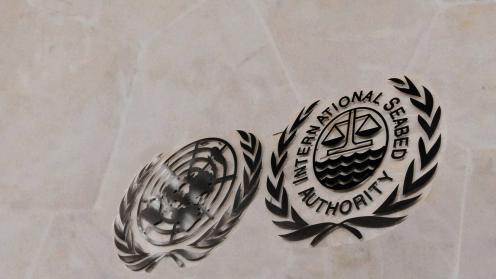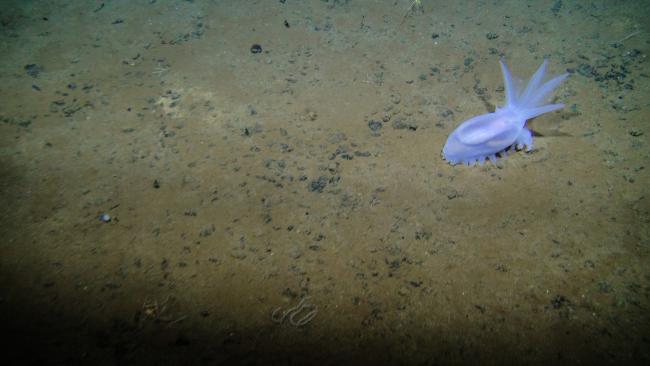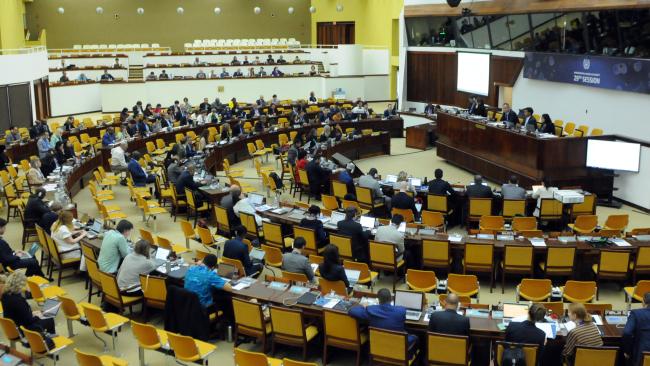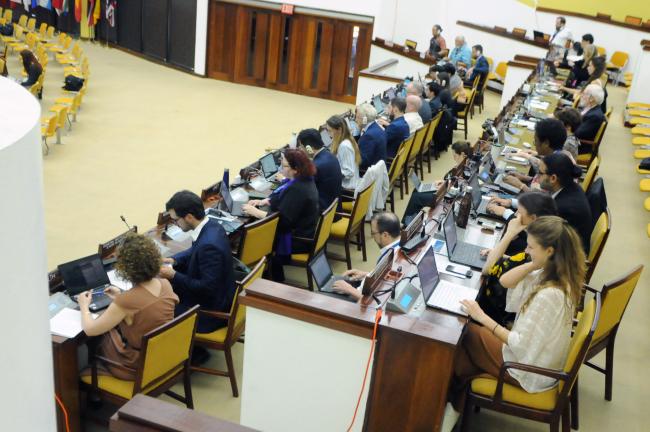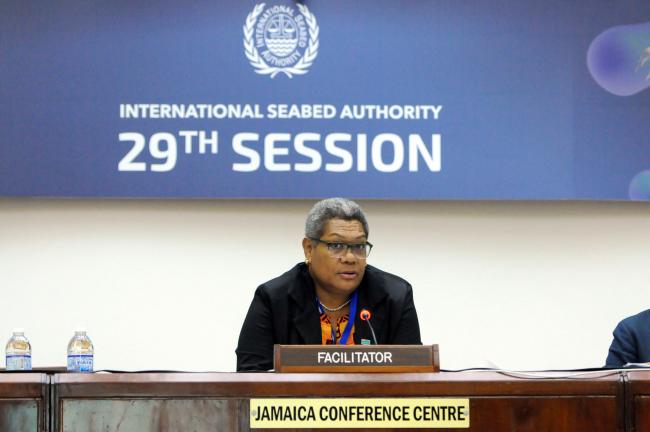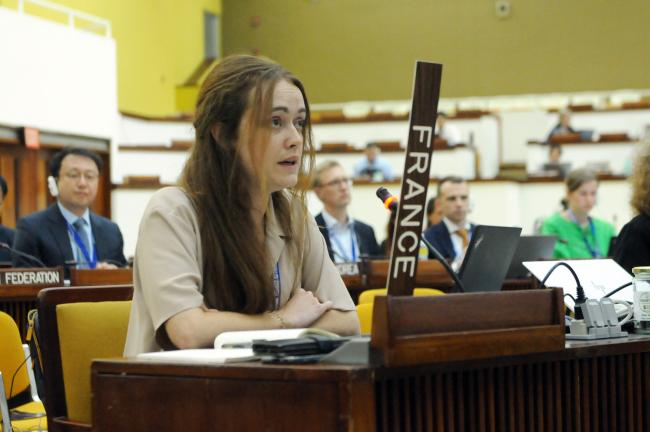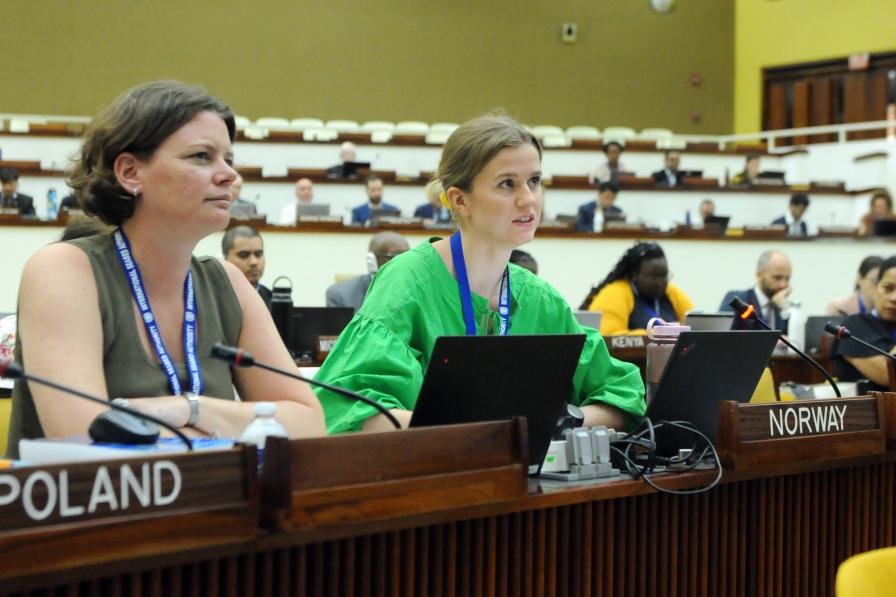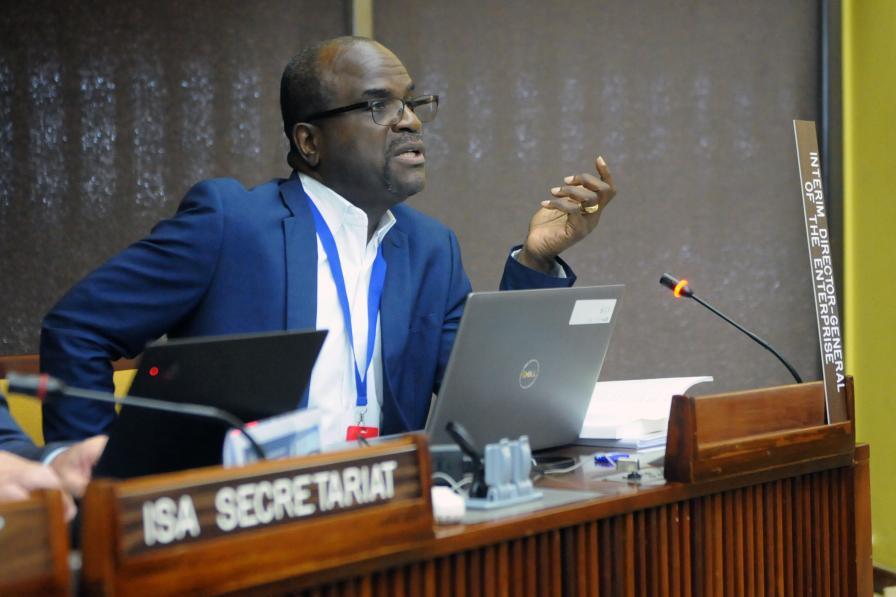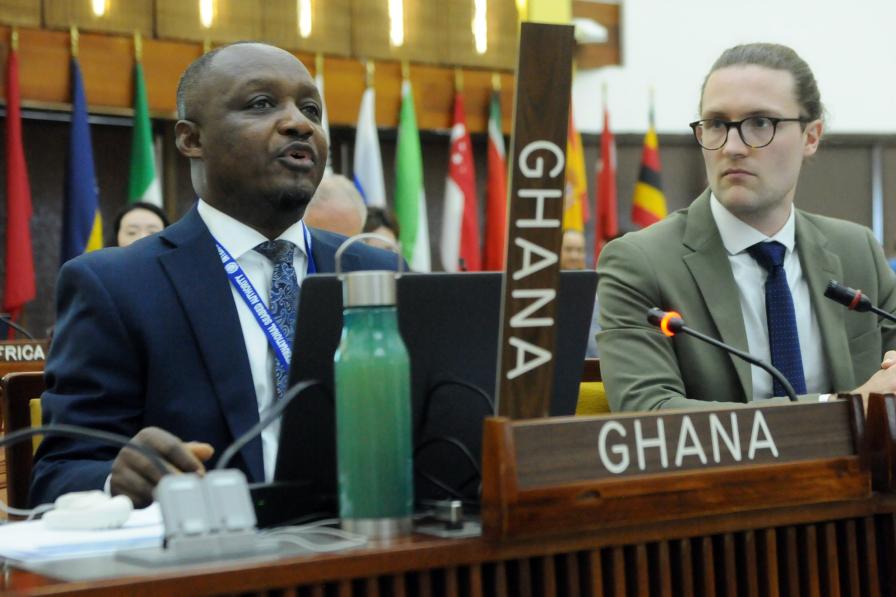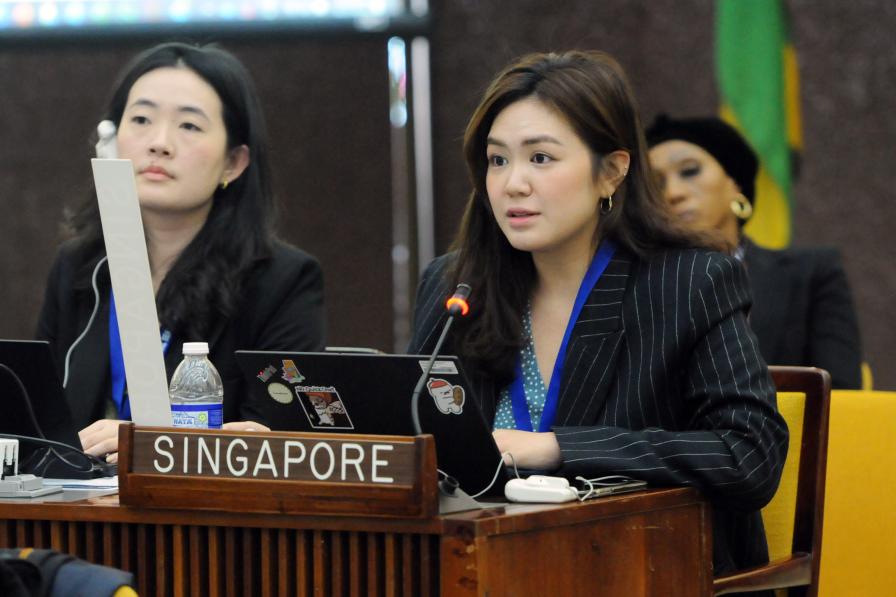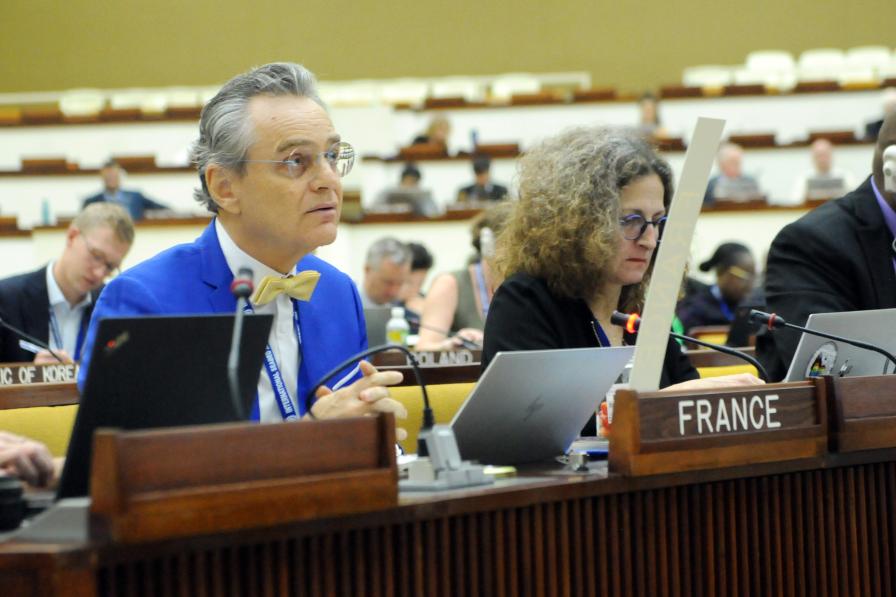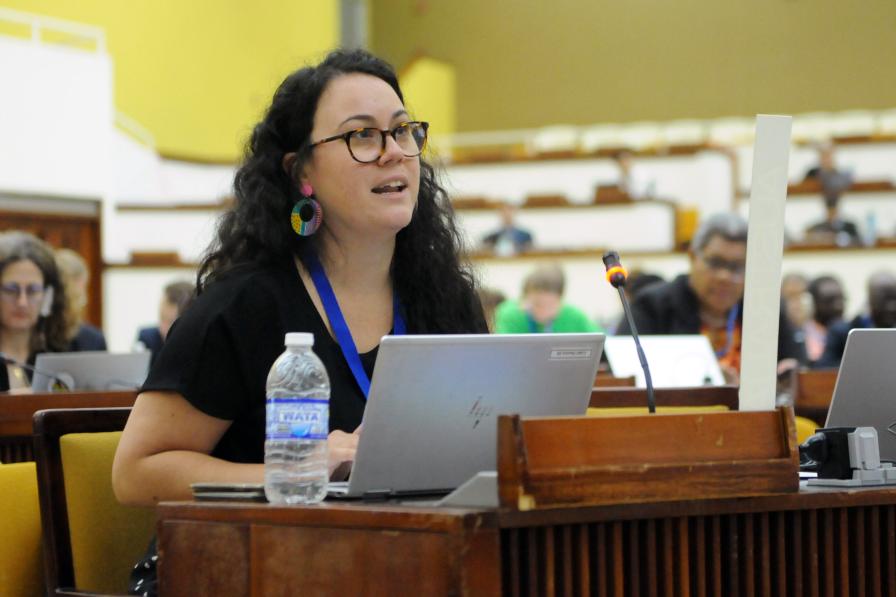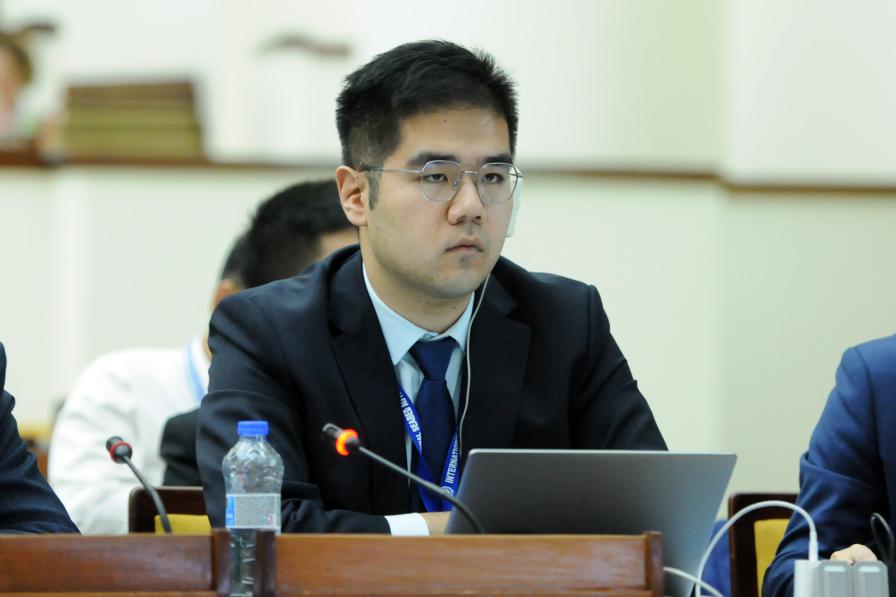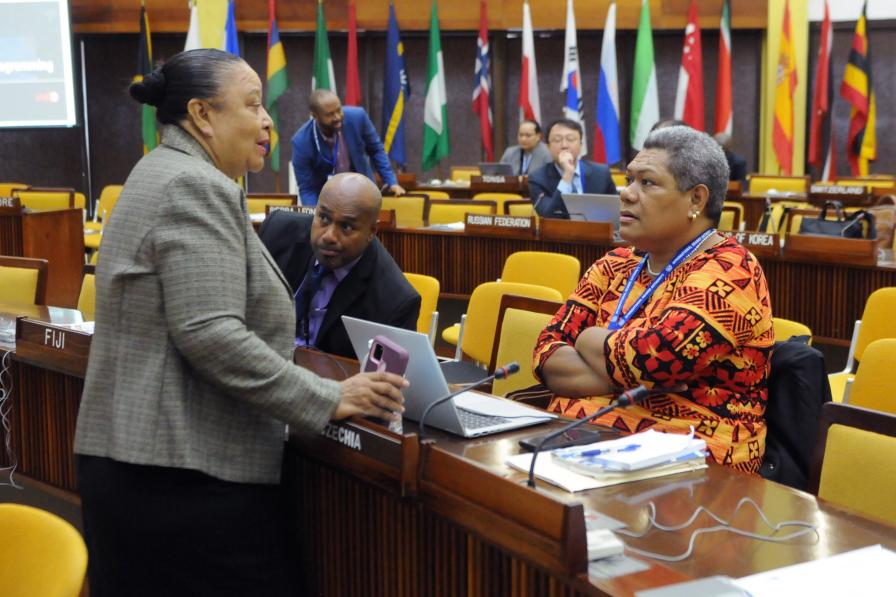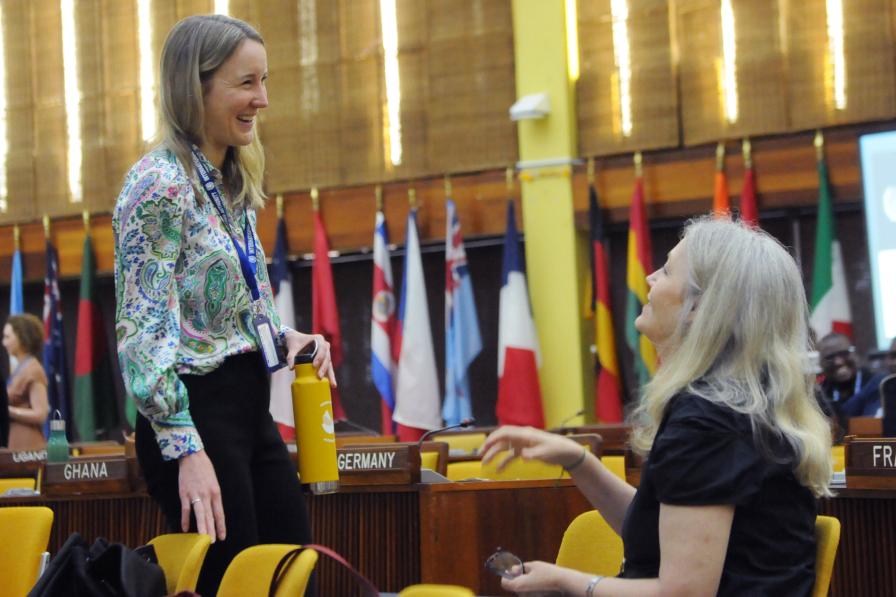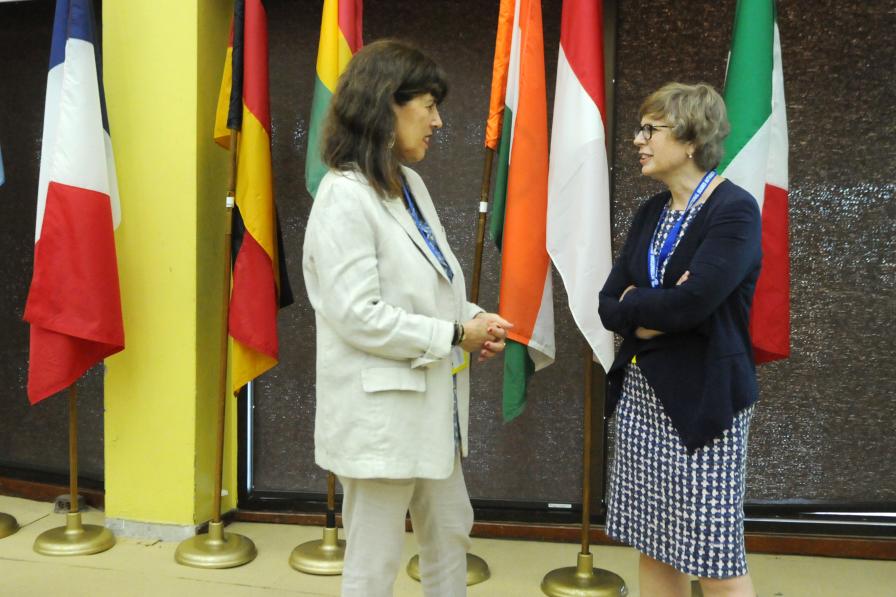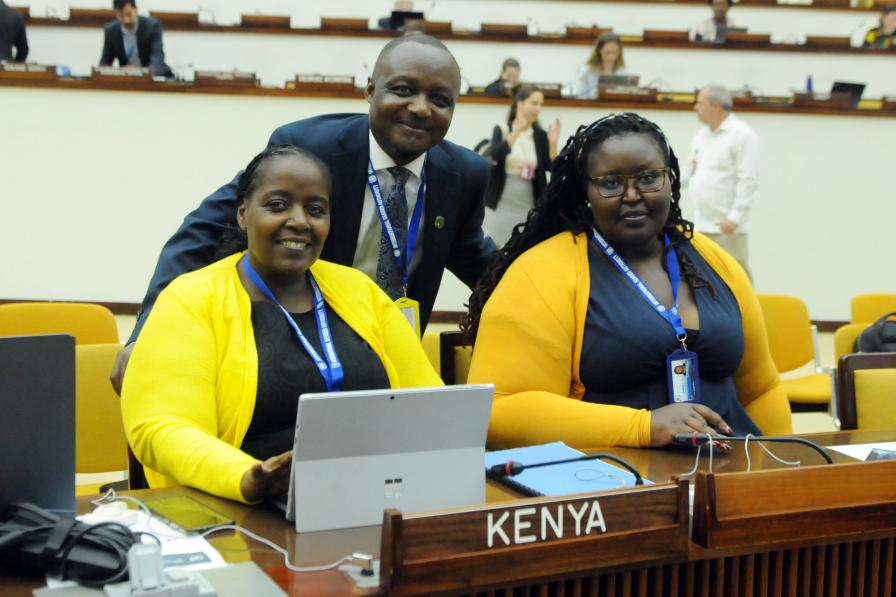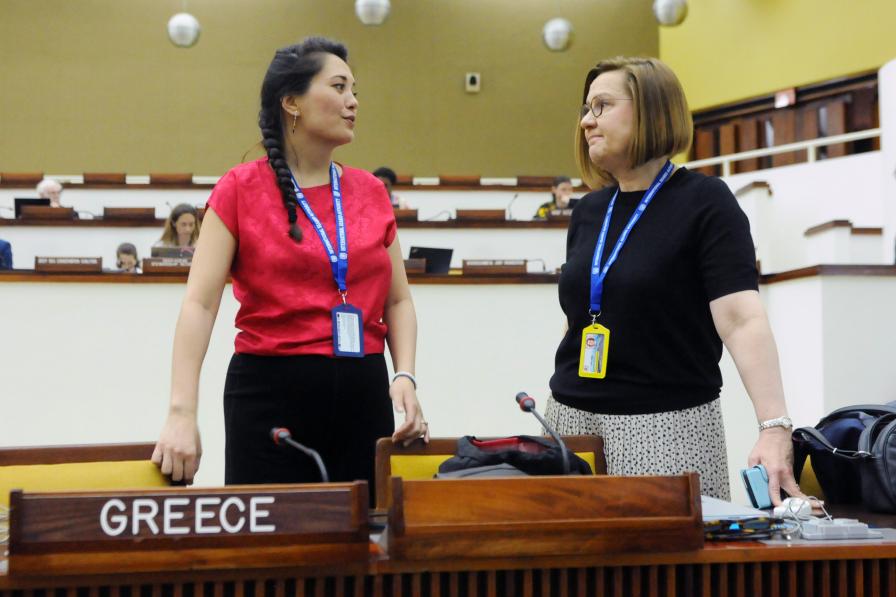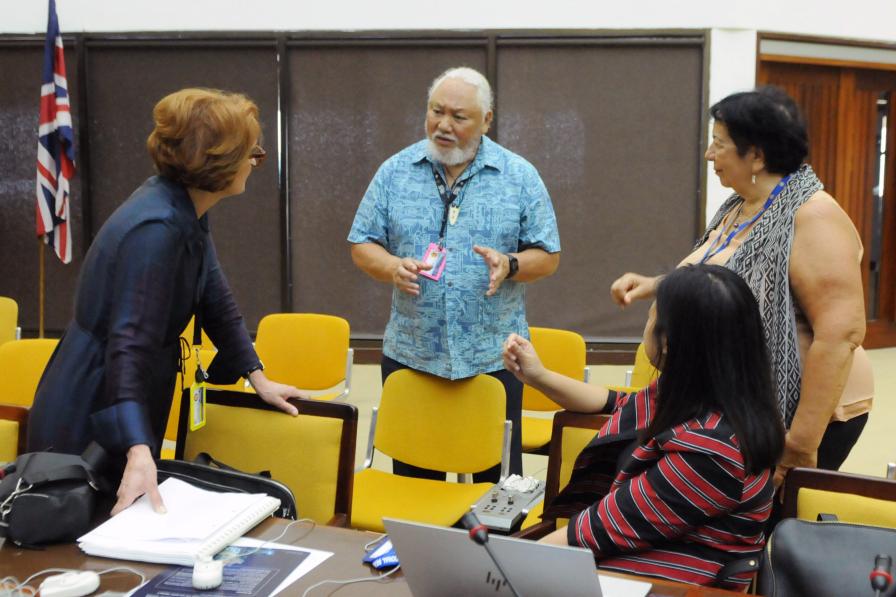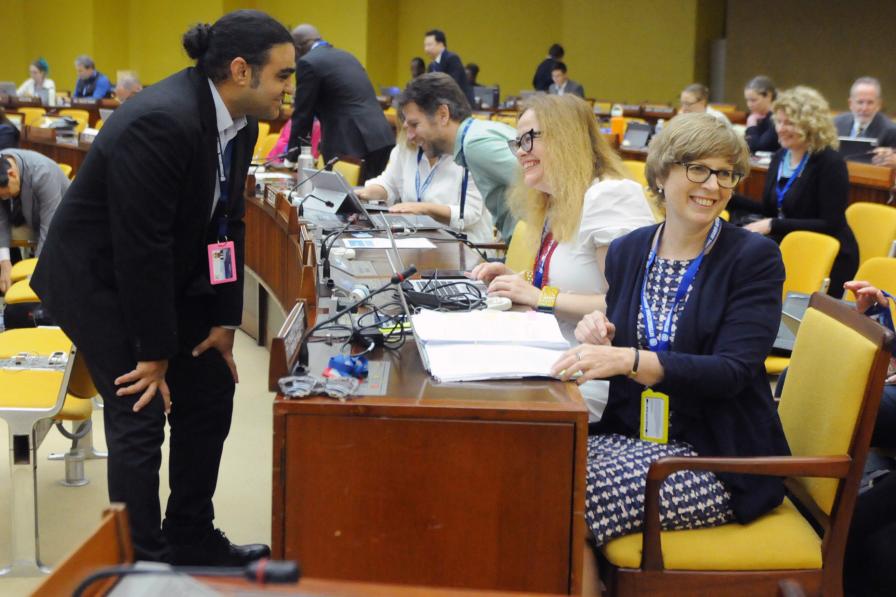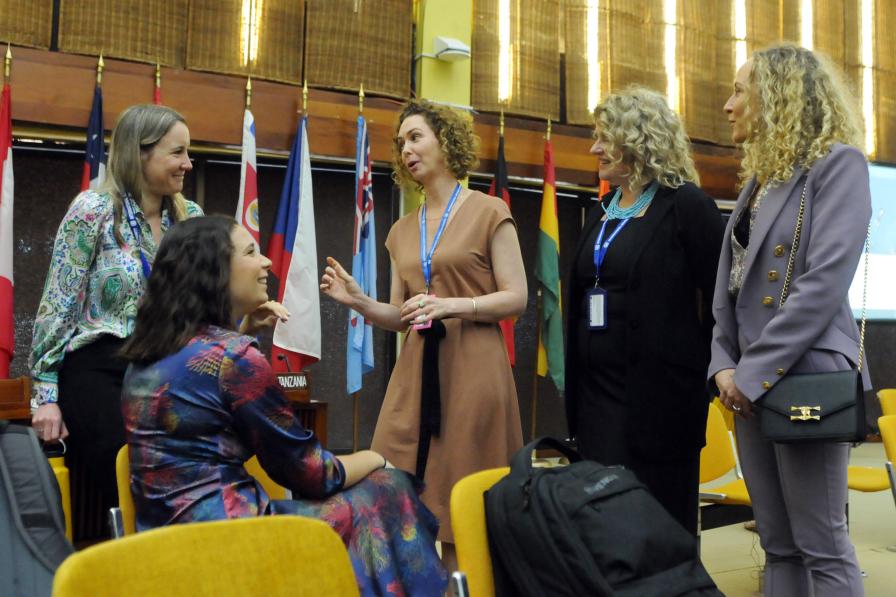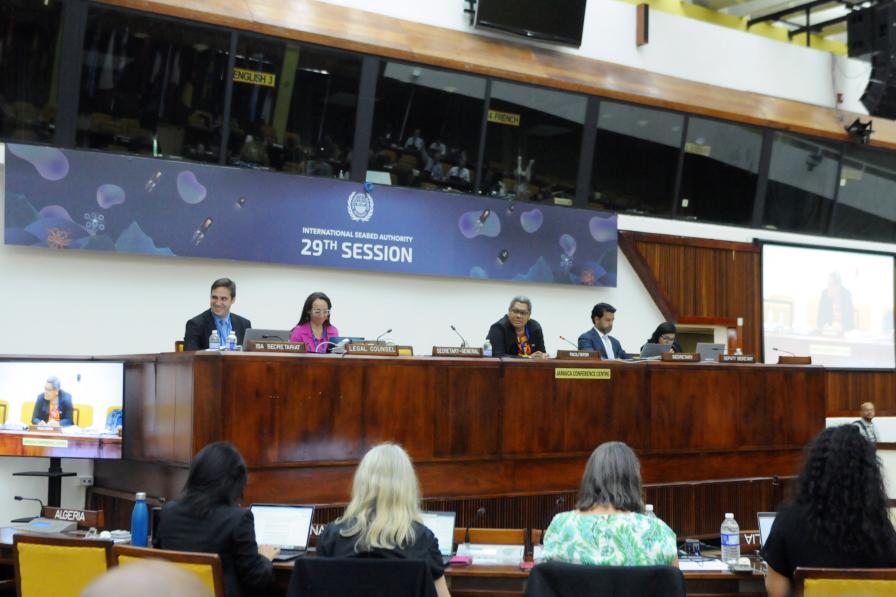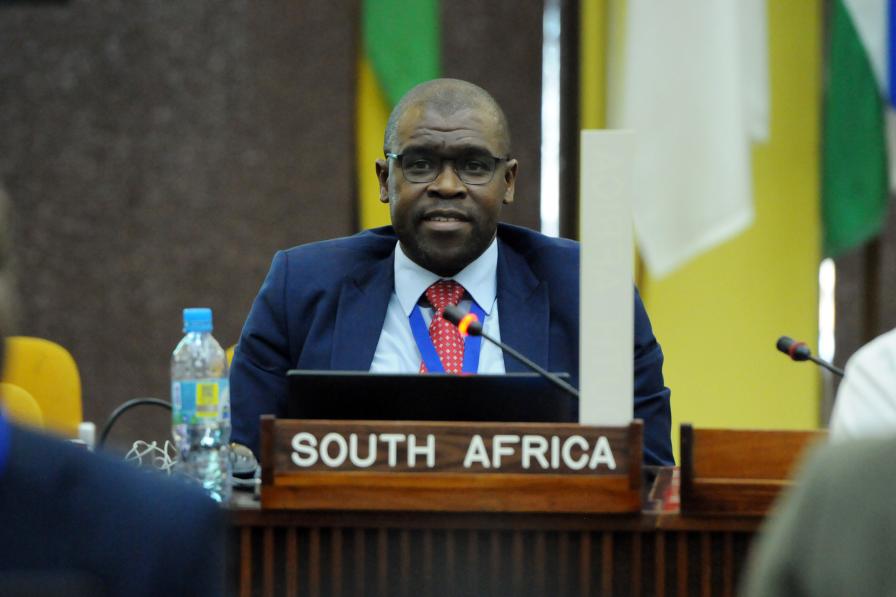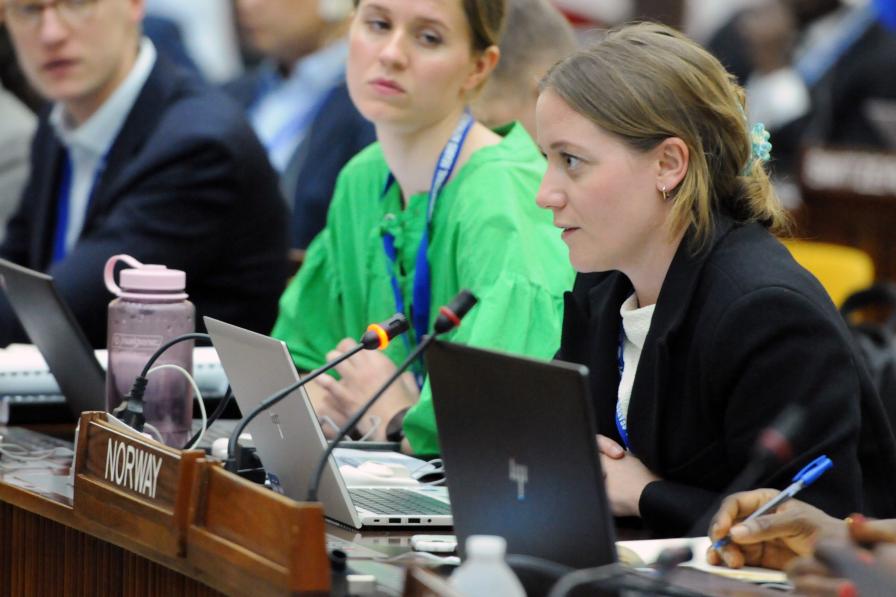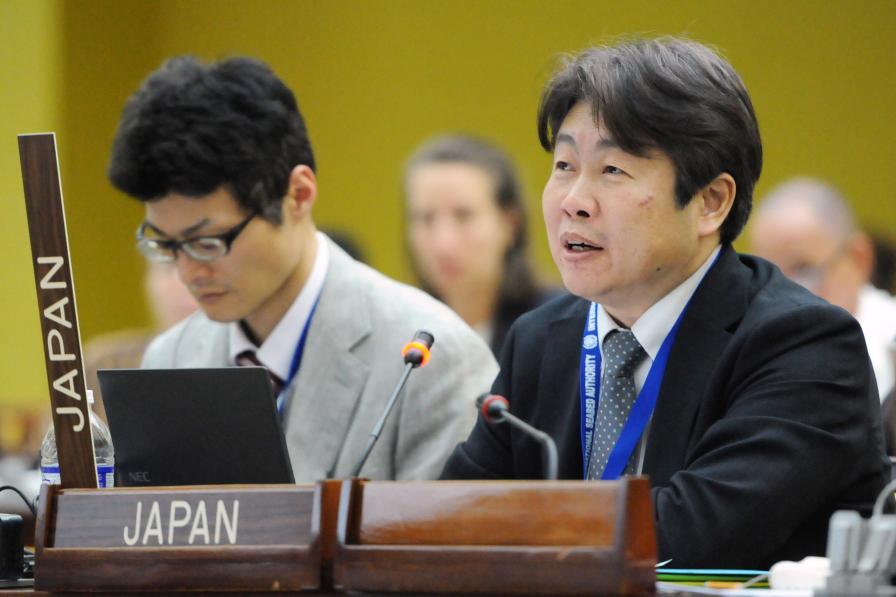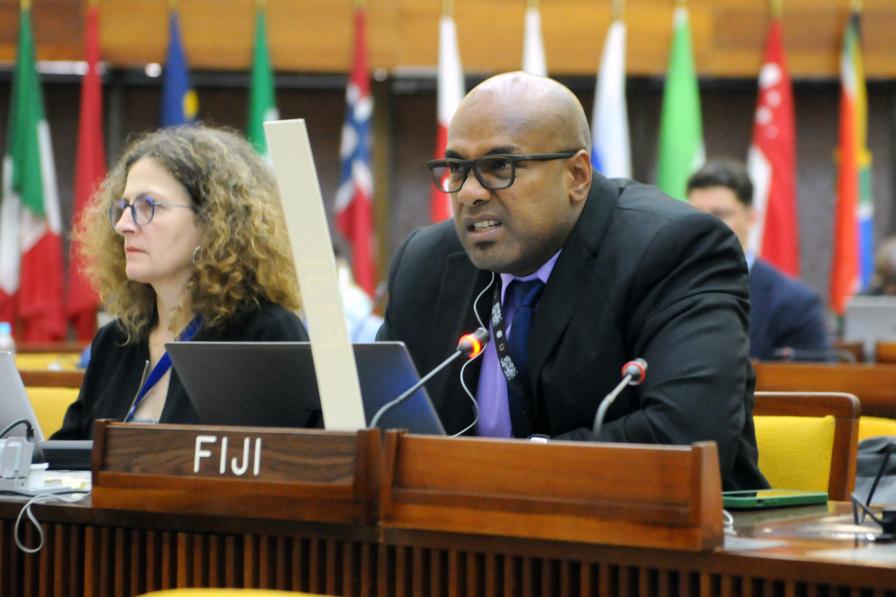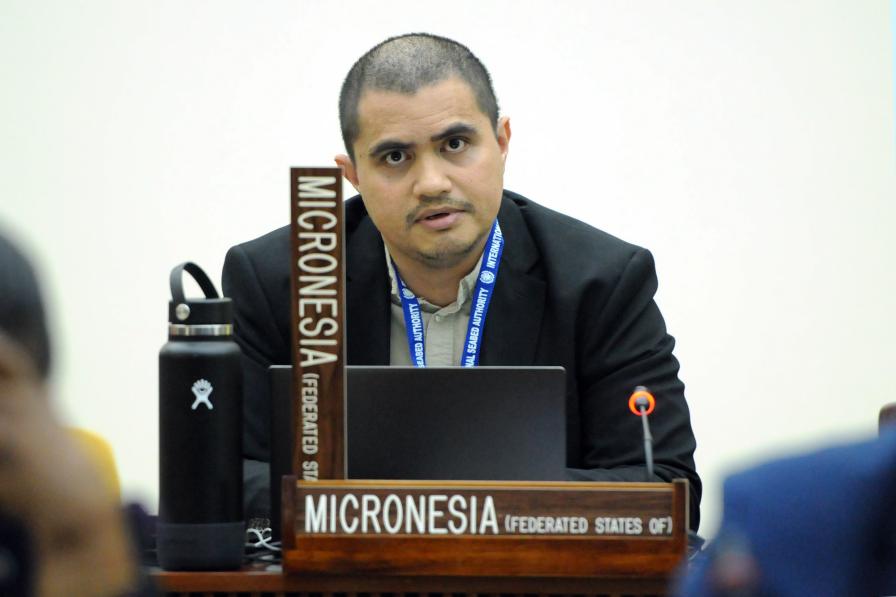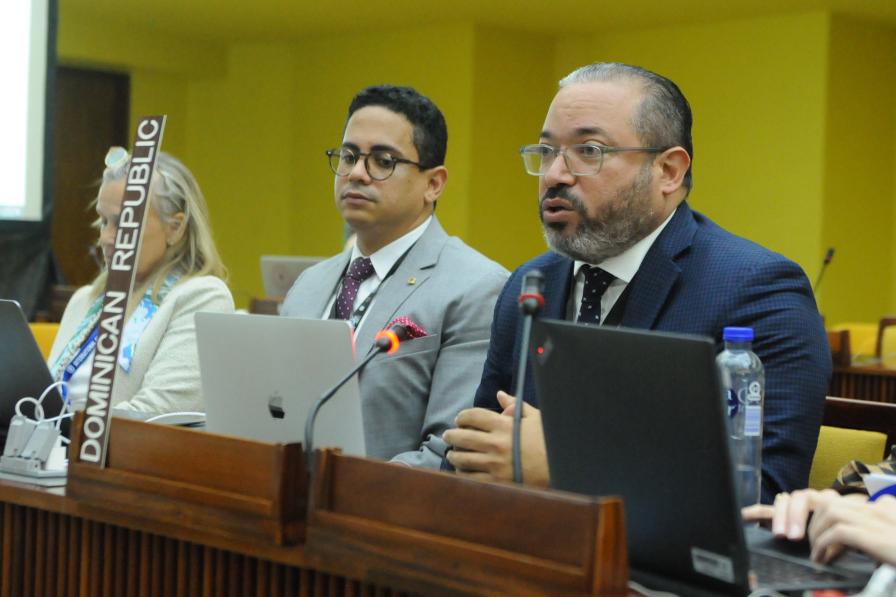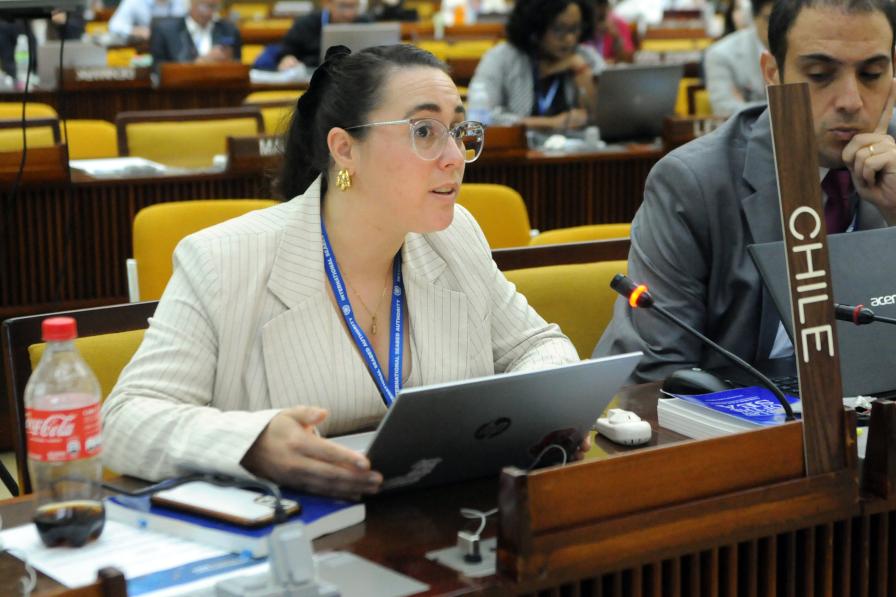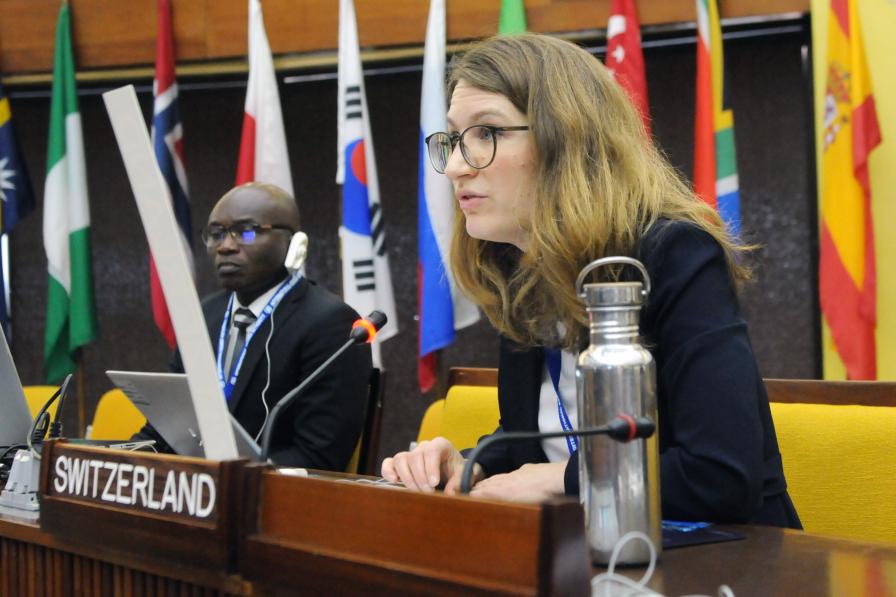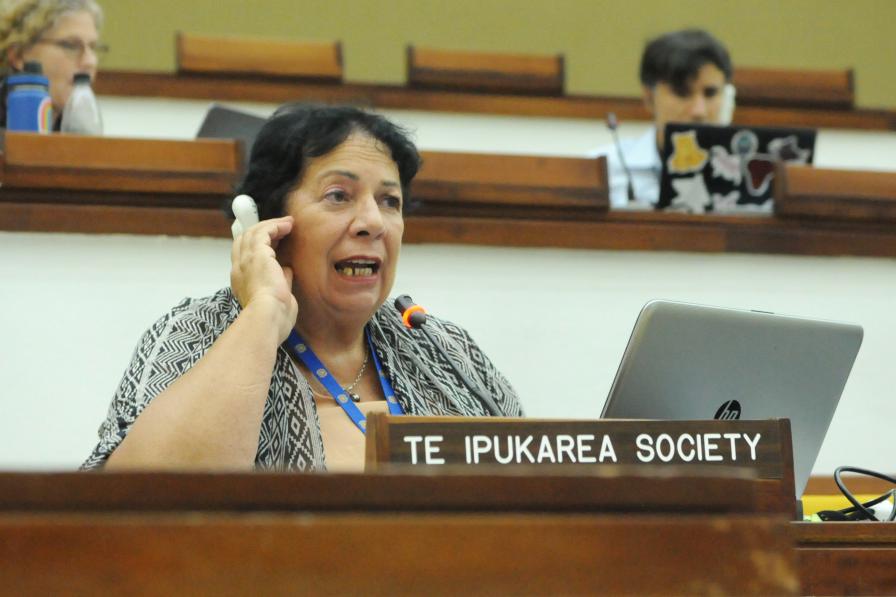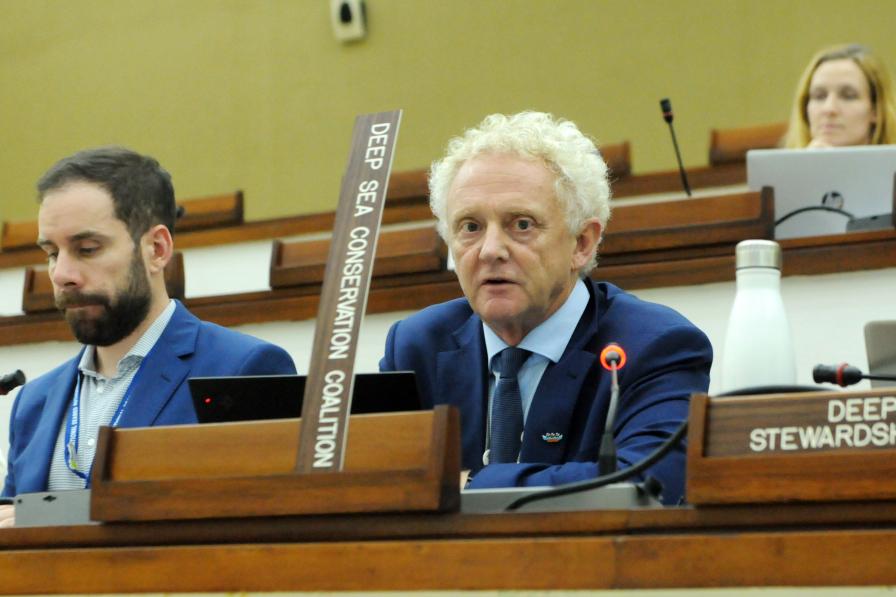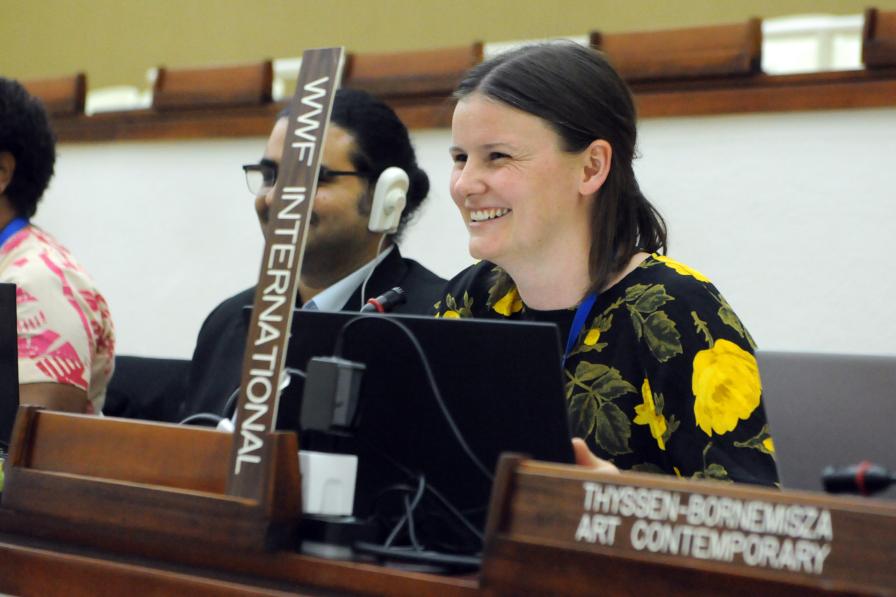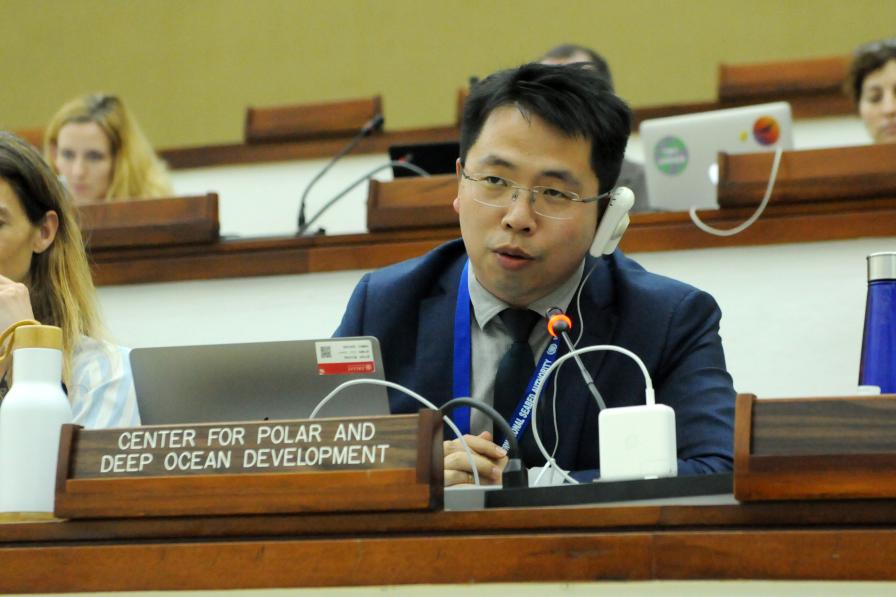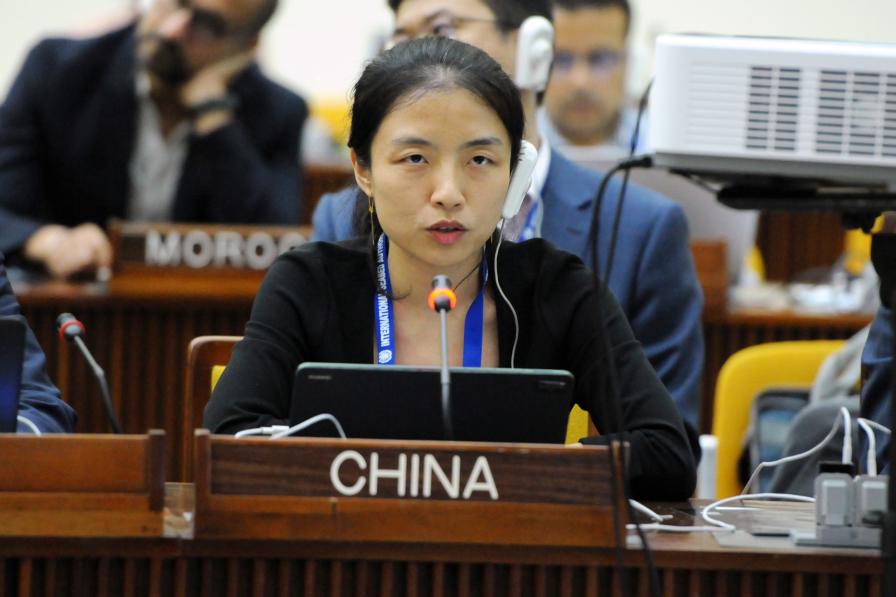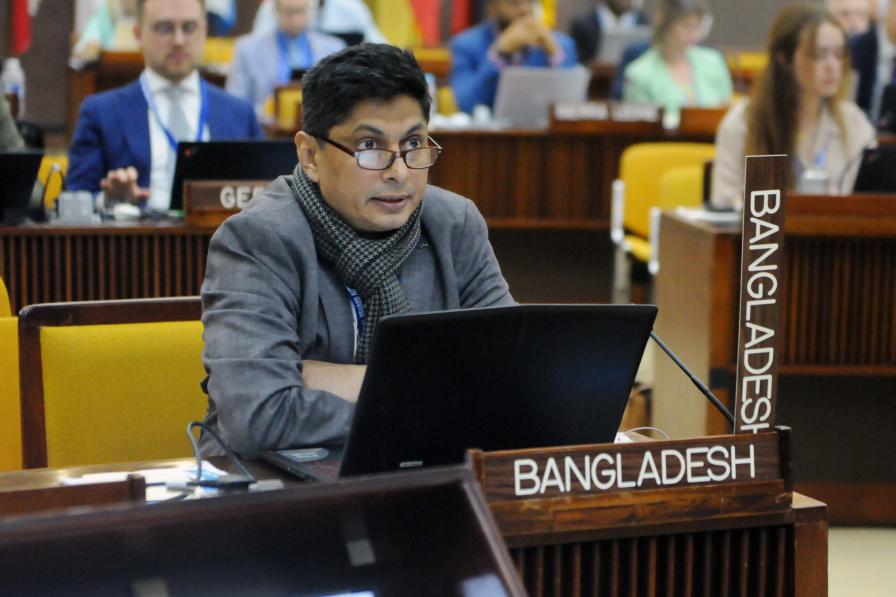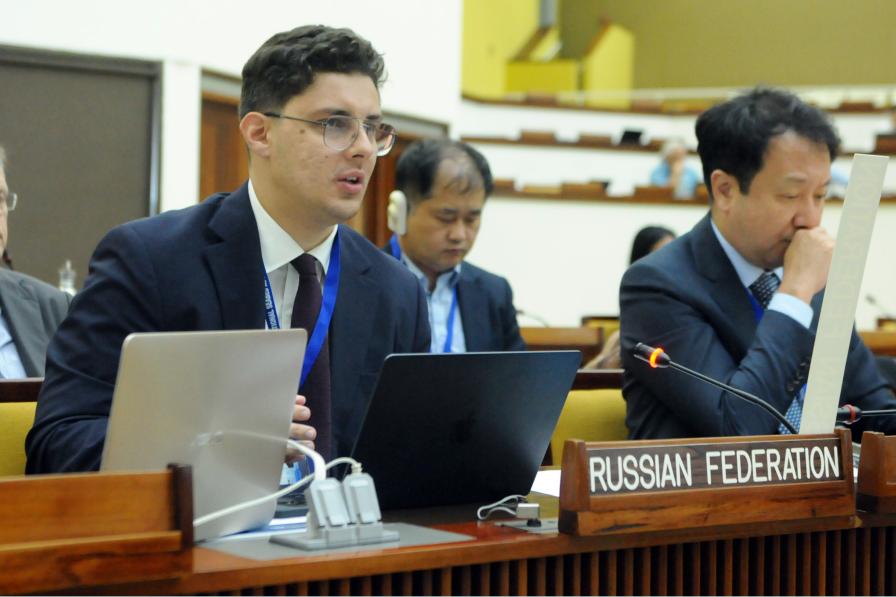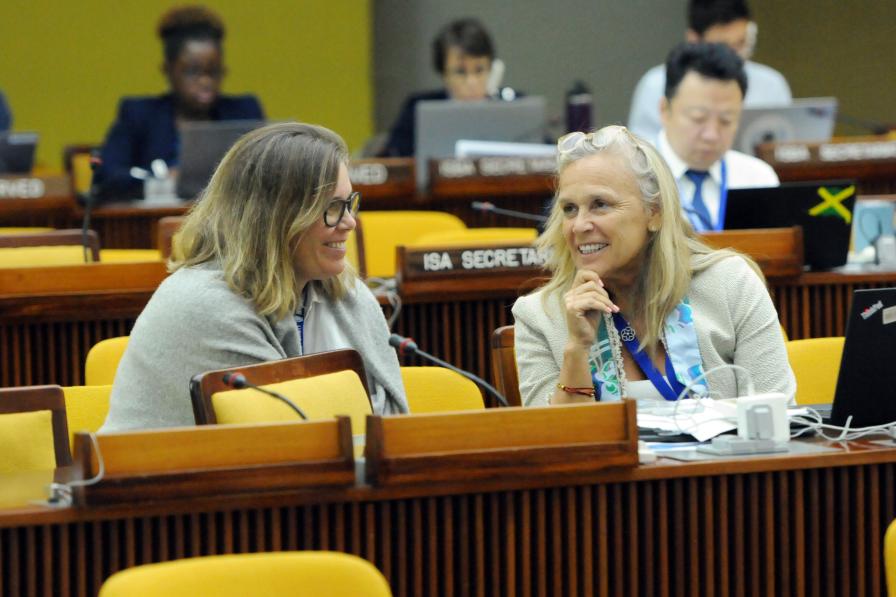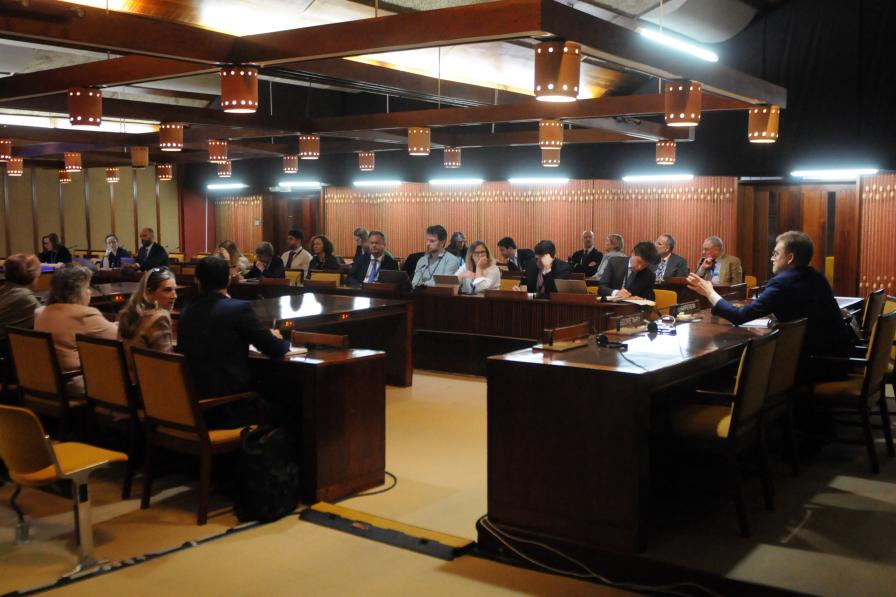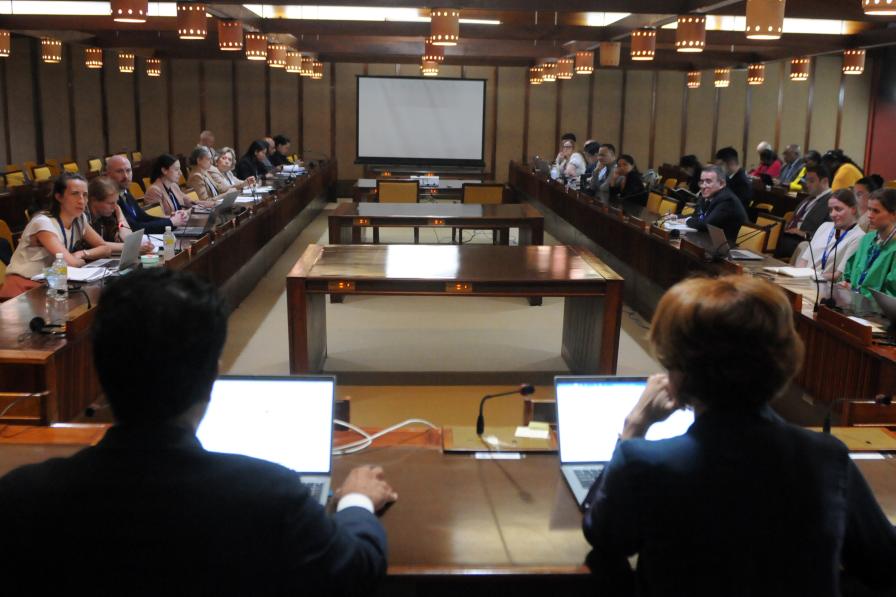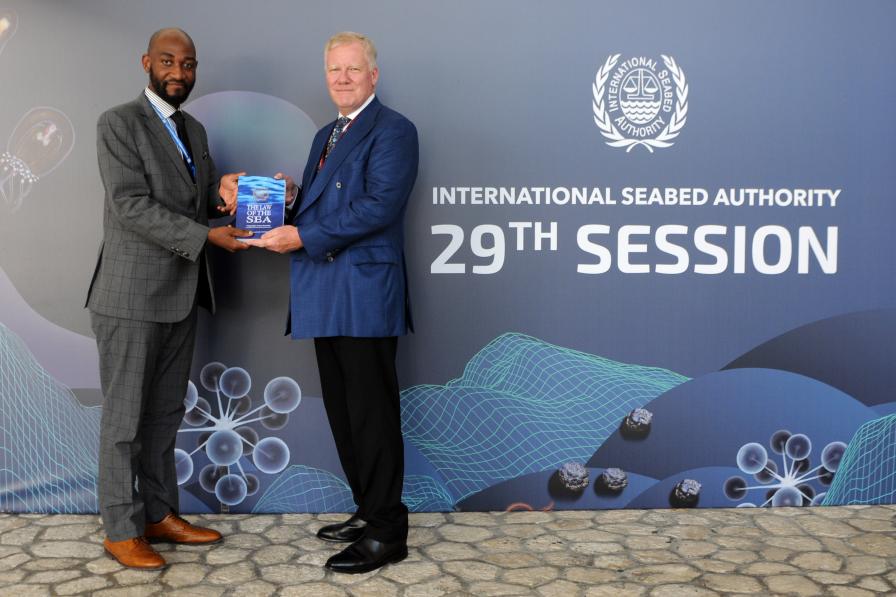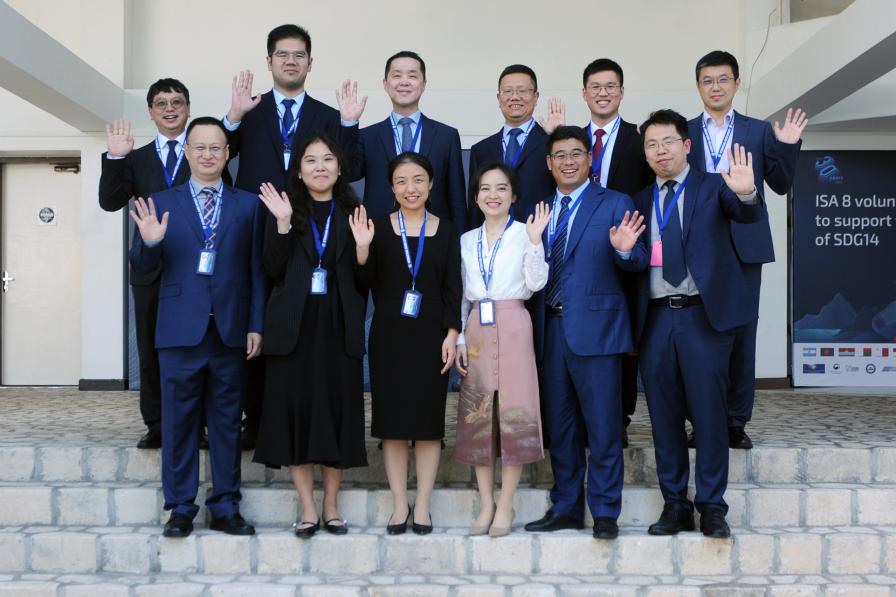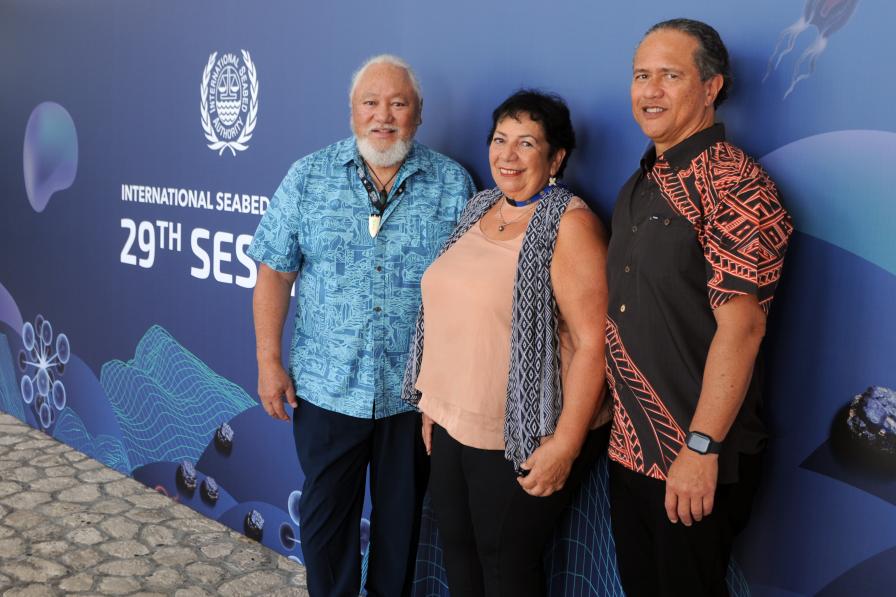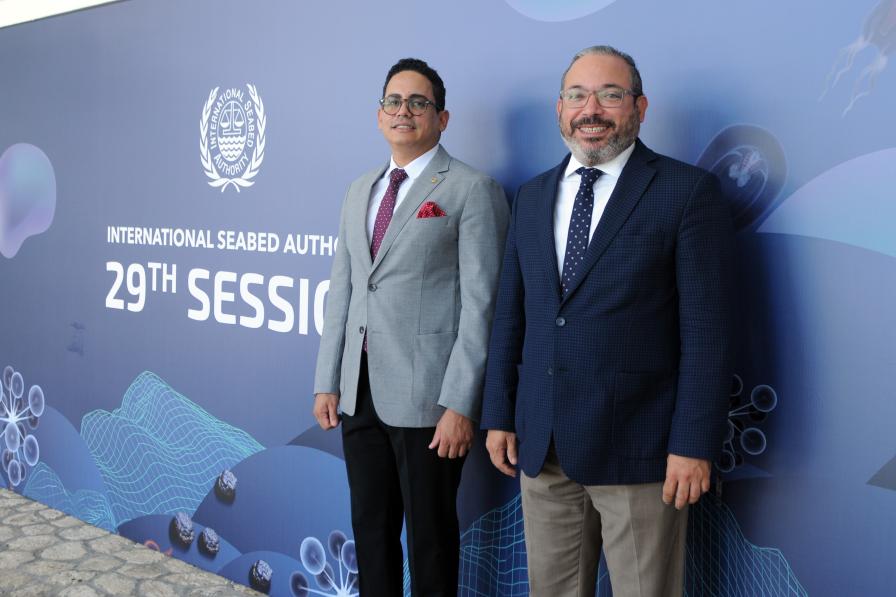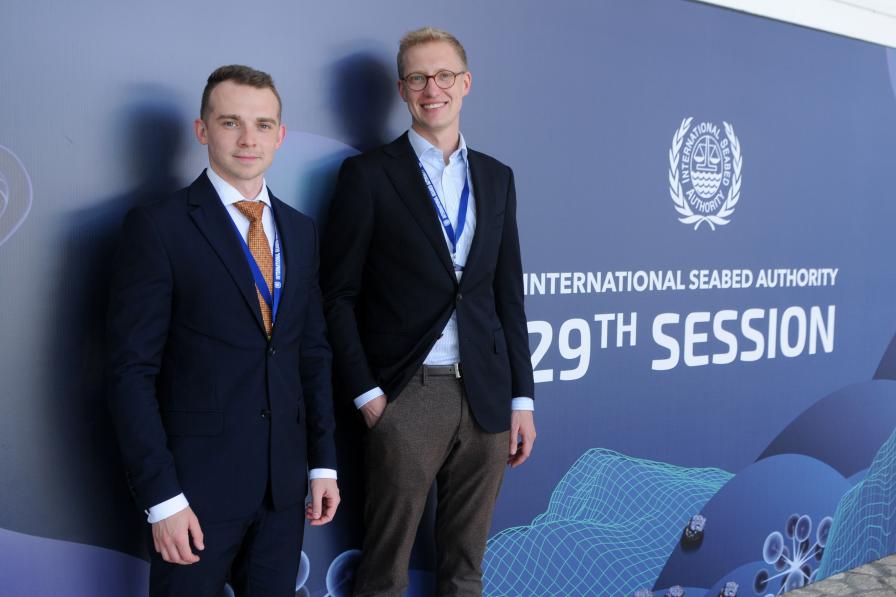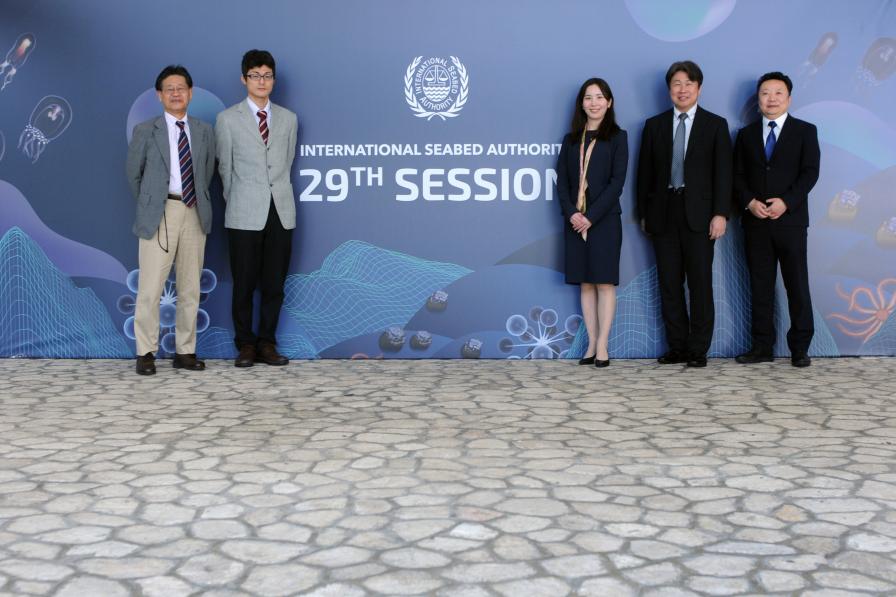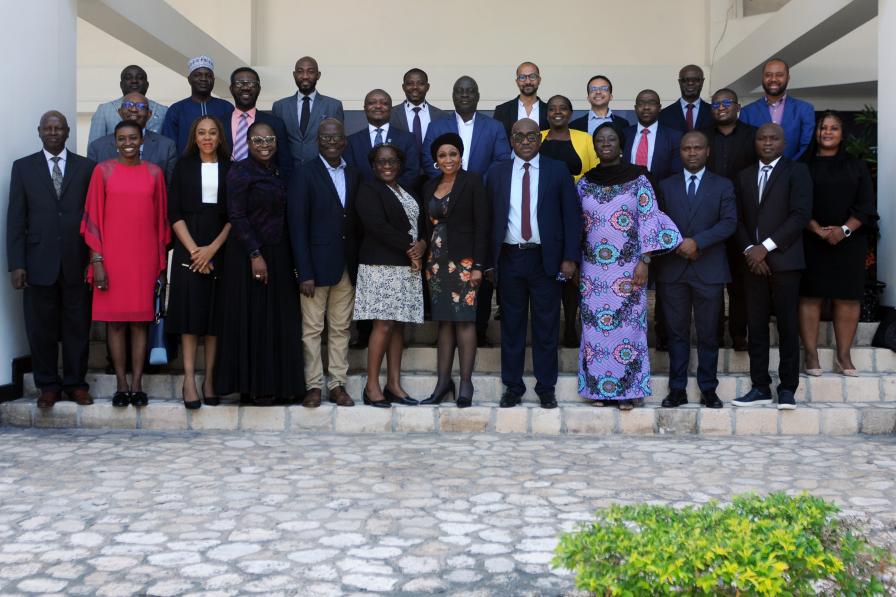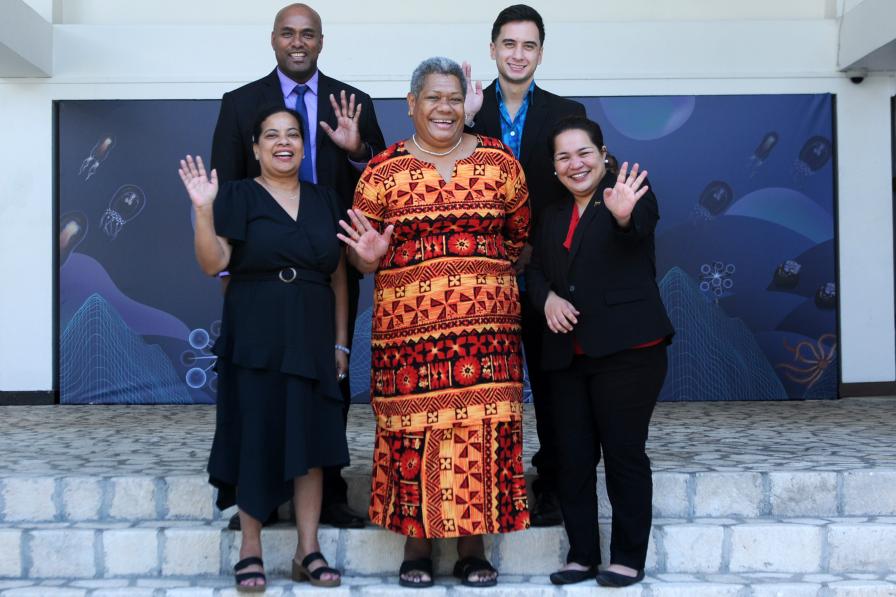Environmental protection took up the lion’s share of Tuesday’s discussions. The protection and preservation of the marine environment from impacts of deep-sea mining is of utmost importance in these negotiations. In addition to the ocean’s invaluable services, which make it crucial for human survival, International Seabed Authority (ISA) members have a legal obligation to protect the marine environment, according to the UN Convention on the Law of the Sea (UNCLOS).
In the morning, President Olav Myklebust resumed the Council’s negotiations on the consolidated text. On the termination of an exploitation contract (Regulation 18 ter), members discussed: whether to retain, among the grounds for termination of a contract, the expiry of a contract without renewal; including a new proposal to ensure that the termination of a contract does not relieve a contractor of any obligation or liability; and the grounds for a suspension or termination of a contract.
On joint arrangements (Regulation 19), some delegates pointed out the absence of a previously suggested provision on the operationalization of joint ventures. A participant stressed that “sound commercial principles” regarding joint ventures with the Enterprise need to be defined.
On terms and renewals of exploitation contracts (Regulation 20), delegates agreed that the maximum term of an exploitation contract should be 30 years from the date of execution. Most agreed that the renewal period should be for a maximum of five years with one suggesting ten. Many insisted that a new revised plan of work needs to be presented in all cases of contract renewal rather than only in cases of material changes. Delegates further discussed whether other information, such as inspection reports and third-party or whistle-blower complaints, should be included in an application for contract renewal without reaching consensus.
On the termination of sponsorship (Regulation 21), several members raised concerns over the inclusion of a provision noting that the contractor must suspend its activities in case of non-compliance if instructed by the Secretary-General. Some members stressed that suspension in cases of non-compliance should be immediate and automatic.
On the use of an exploitation contract as security (Regulation 22), some members emphasized that the contractor may mortgage or otherwise encumber all or part of its interest under an exploitation contract “solely for the purpose of raising financing to effect its obligations and with the prior consent of the sponsoring state and the Council.” Many delegates underscored that ISA shall not provide any funds or issue guarantees, becoming liable for the financing of contractors’ obligations.
On the change of control (Regulation 24), some delegates agreed the definition could be moved to the Schedule (glossary). Many noted the Legal and Technical Commission (LTC), rather than the Secretary-General, should be responsible for activities regarding the environmental performance guarantee as well as for cases where a change of control may affect the contractor’s financial capability to meet its obligations.
Regarding the documents to be submitted prior to production (Regulation 25), members raised questions on: the purpose and content of the feasibility study; potential overlaps with test mining; and the links between the feasibility study and the plan of work. An observer stressed that feasibility studies are a commercial tool for contractors, not a decision-making tool for regulators.
In the afternoon, Facilitator Raijeli Taga, Fiji, opened the 7th session of the Informal Working Group on the Protection and Preservation of the Marine Environment. She invited delegates to focus on the environmental compensation fund, pointing to the relevant briefing paper and the guiding questions contained therein.
Many delegates stressed any damage to the Area and its resources, and to the marine environment should be included for compensation. Some noted that only damage unlawfully caused by the contractors’ activities, and for which the contractor cannot meet their liabilities and the sponsoring state is not liable, should be considered. Others emphasized that “any and all” environmental damage, including from lawful activities, accidents, and non-anticipated impacts as well as other damage to property, personal injuries, and economic loss, should be compensated.
Many delegates supported the polluter pays principle and noted that the fund should be considered as a last resort. They highlighted the links between the fund and liability and insurance, underscoring the need to address these issues together.
Supporting a broad scope for the fund, observers emphasized the need for strict contractors’ liability. They further noted that discussions on effective control and ecosystem valuation are pertinent, urging distinguishing between protection and compensation.
On how the fund will be managed and by whom, a few members supported management by an independent or external manager. On the question of who is to be compensated, delegates pointed out: the ISA; entities engaged in deep-sea mining; other users of the sea; coastal states; any affected person or state; regional, subregional, and sectorial frameworks and bodies; any member of the international community; any public or private entity; and non-governmental organizations. On the standard of proof that will be required to access the fund, a member highlighted the civil litigation standard of proof as a starting point.
On the elements that should be addressed under the regulations and those placed under standards and guidelines, a delegate suggested the regulations should address: establishment and governance; criteria for eligibility and compensation; procedures for assessing damage and determining compensation amounts; oversight and dispute resolution; and reporting requirements.
Delegates then addressed the relevant regulations on the establishment of an environmental compensation fund (Regulation 54) and its purpose (Regulation 55), discussing how to put their suggestions into practice. Many members emphasized that no exploitation should be allowed before the fund is operational.
To receive free coverage of global environmental events delivered to your inbox, subscribe to the ENB Update newsletter.
All ENB photos are free to use with attribution. For the 1st Part of the 29th Annual Session of the ISA, please use: Photo by IISD/ENB - Diego Noguera
Council Meeting
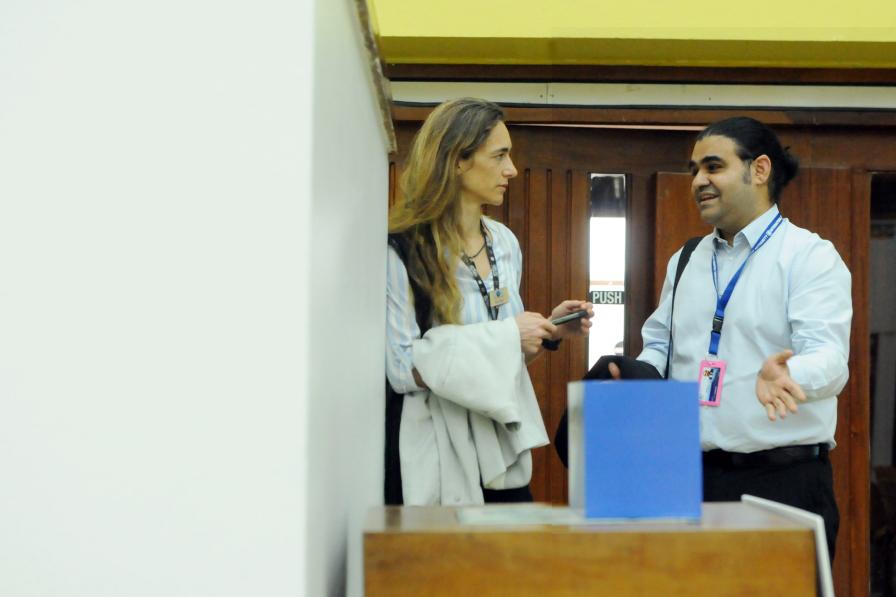
Patricia Esquete, Deep Ocean Stewardship Initiative (DOSI), and Pradeep Singh, International Union for Conservation of Nature (IUCN)

Katherine Cronin (center), Ireland, confers with Fleur Pennarts (left) and Emma van den Boogaard, the Netherlands
